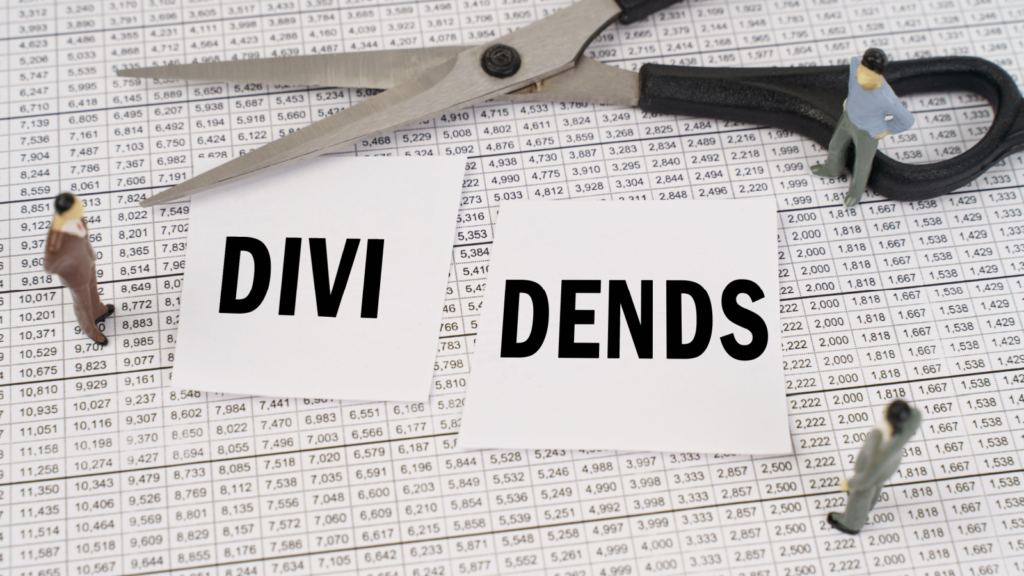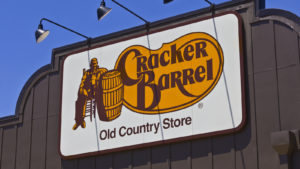3 Stocks at Risk of a Dividend Cut: March 2024


Dividend investors seek stocks with the highest yields, solid earnings and cash flow to support them. However, not all stocks that offer high dividends have the financial performance to sustain them, and they may have to cut the return.
These three stocks offer higher-than-average yields but have warranted caution over the last quarter and coming into this year. Dividend investors should be wary of the potential cuts that these companies could make this year after less than satisfactory financial gains.
We’ll detail the numbers and reports from these companies that show potential signs of an incoming cut this year.
Cracker Barrel (CBRL)
Cracker Barrel (NASDAQ:CBRL) paid its last dividend on Feb. 13 at $1.30 per share, an amount that has persisted since 2019 and contributes to Cracker Barrel’s current yield of 7.95%. Consistency is important for dividend stocks. However, looking closely at Cracker Barrel’s recent financial performance over the last year, there is room for doubt.
Cracker Barrel paid out 94% of its cash flow in dividends and over 116% of its profit from last year. These two indicators tell us the percentage of earnings a company pays shareholders dividends. And in Cracker Barrel’s case, these numbers are pretty high.
The average payout is closer to 75% of earnings, as a company needs to use its cash and profits to maintain and prosper. Cracker Barrel paying such a high payout is concerning, especially considering the company’s earnings per share have declined since a peak in early 2021.
Despite the company’s promise of a comparatively high dividend yield, the recent financial performance and general outlook could result in a cut this year.
Hasbro (HAS)

Hasbro (NASDAQ:HAS) faced several challenges last year, reflected in the company’s earnings report. The company reported a 15% revenue decline and a net loss of $10.73 per share. This month, Hasbro paid shareholders $.70 per share, currently sitting at a yield of 5.15%.
This payment was a whopping 160% of the company’s earnings relative to Hasbro’s cash flow. Despite the obstacles affecting Hasbro’s earnings, the company has continued to attempt an annual dividend increase.
At this point, that increase doesn’t seem sustainable. To further that notion, Hasbro has a set leverage target and continues to allocate significant portions of its profit to paying down its debt, costing them $506 million last year.
Despite these large payouts, Hasbro may not have the continued profits to support them and may be forced to cut dividends to maintain its current trajectory of debt payments.
Wendy’s (WEN)

While Wendy’s (NASDAQ:WEN) does not pay out nearly as much cash in dividends as the other two stocks on this list, its most recent earnings report is less than favorable for dividend investors.
A telling metric is the decrease in adjusted earnings per share that Wendy’s has experienced since five years ago. Wendy’s has increased dividend payments throughout its history but may not have the proportional earnings increase to supplement and maintain such a promise.
With Wendy’s current performance, it would be challenging to maintain their current payouts in the short and long term. After missing initial estimates last quarter, Wendy’s new CEO plans to expand breakfast and advertising.
As promising as it sounds, dividend investors should consider how the extra spending may affect Wendy’s overall profits and the percentage of their cash flow that will be reallocated. A cut this year from Wendy’s to achieve new earnings goals and maintain its current outlook is possible.
On the date of publication, Joel Lim did not have (either directly or indirectly) any positions in the securities mentioned in this article. The opinions expressed in this article are those of the writer, subject to the InvestorPlace.com Publishing Guidelines.










